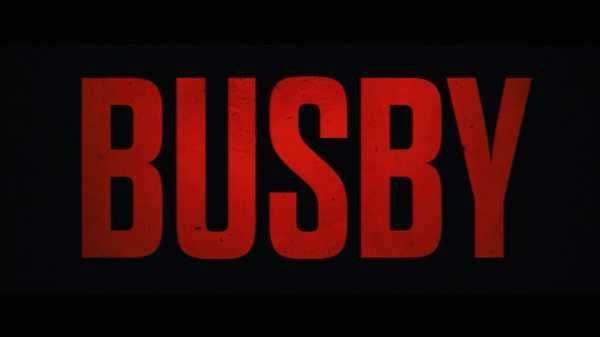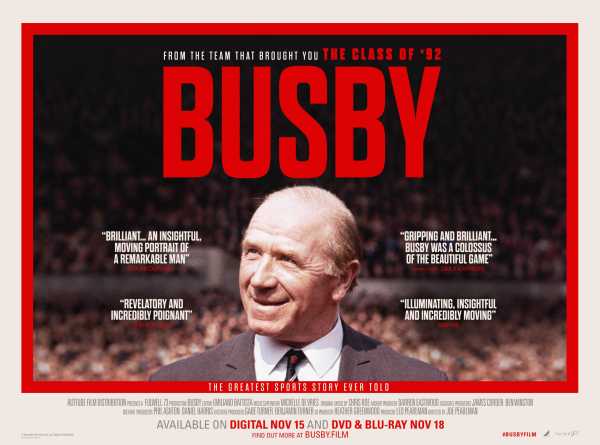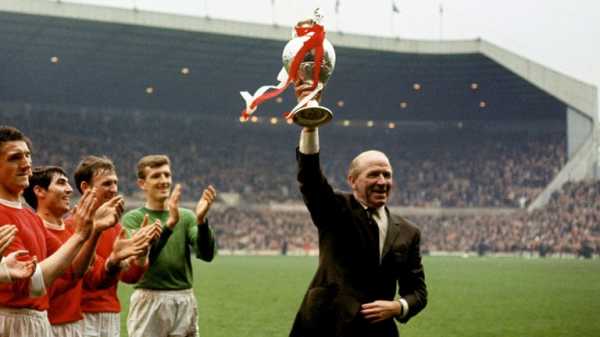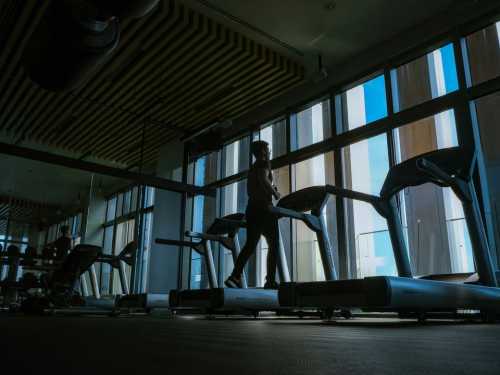
2:16 Watch the official trailer for Busby, a new film on the legendary Manchester United manager from the producers of the Class of ’92
Busby’s 25-year spell as Manchester United’s manager is, of course, the focus, but the film crams almost his entire life into its 98-minute run-time, beginning with his working-class upbringing in Scotland’s Lanarkshire mining country and a reminder that, for him and many others, football was an escape from a harsh existence.
Busby was a product of a tough environment, even by the austere standards of the day, but in one of a series of revealing archive interviews, we also hear about the “inferiority complex” that almost convinced him to give up on the sport as a teenage apprentice at Manchester City.
Champion of youth
It was, perhaps, the root of the empathy that would become a defining feature of his management style. Decades later, the young player who almost turned his back on it all would become the architect of the Busby Babes, a pioneering champion of youth who made his players “feel important” in a way he had not himself at the beginning of his career.
- Pogba reveals injury timeline
- Premier League hits and misses
Busby’s early experiences shaped him, instilling in him the principles of hard work and humility as well as humanity, and he duly shaped Manchester United, transforming a club which was quite literally bombed-out when he took the job in 1945 – Nazi air raids are shown to have reduced parts of Old Trafford to rubble – into a powerhouse of the game.

We hear how he redefined the role of management, demanding unprecedented control of team selection, transfers and even day-to-day training. Busby is described as the first “tracksuit manager”, preferring to join his players on the training pitch rather than sit in an office. His sessions are brought to life in more illuminating archive footage.
Busby’s impact was immediate, of course. Having bounced between the top two divisions in the years leading up to the Second World War, Manchester United secured four second-placed finishes in Busby’s first five years in charge, winning an FA Cup and, in 1951/52, clinching the First Division title or the first time in four decades.
By that point, Busby was placing more and more emphasis on youth, an approach which would become synonymous with the club and one they are attempting to reapply under Ole Gunnar Solskjaer, whose treble-winning heroics in 1999 – for a Manchester United side dominated by the Class of ’92 – also feature in the film as an illustration of the great man’s legacy.

We hear how Busby and Jimmy Murphy, his influential assistant, recruited and developed young talent partly because they felt older players had become – to use a term from the film – “corrupted” by past failures, but also as a means of holding down the wage bill and creating a sense of identity.
The ethos was “nobody is bigger than the club” and the result was a thrilling young team which captivated the nation – before tragedy struck.
Tenure tinged by tragedy
The film deals sensitively with the horror of the Munich air disaster, which claimed the lives of eight members of the Busby Babes, including the “incomparable” Duncan Edwards, in February 1958. We see the news conveyed back in Britain through newspaper cuttings and hear of the disbelief which greeted it.
- Find out more about Sky Sports
- Ref Watch: ‘Son red understandable’
The testimony of the crash’s survivors is deeply poignant. As well as showing footage of the wreckage itself, the film shows players and staff recovering in Munich’s Rechts der Isar Hospital afterwards. Their thumbs up for the cameras are jarring in the context of the events.
Busby himself was among the most seriously injured, coming close to death and not even discovering the devastating extent of the crash until some weeks later. He would recover from his injuries, of course, but the mental scars left him with an enduring sense of guilt.

We hear how he felt responsible for what happened, how he blamed his obsessive pursuit of the European Cup – United were travelling back from a tie against Red Star Belgrade at the time of the crash – and even how he wished he had died with his players.
Busby spent more than two months in hospital, but the film chronicles United’s return to competitive action a little over two weeks after the crash, their decimated team, cobbled together by Murphy, who had not travelled to the Red Star Belgrade game, drawing 1-1 with Nottingham Forest at a packed Old Trafford.
There is haunting footage of a numb and expressionless Bill Foulkes, one of two survivors to play in that game along with goalkeeper Harry Gregg, sitting silently in the dressing room afterwards. His trauma is obvious but his bravery after such horror typifies the club’s response to the disaster.
Busby’s ‘crowning achievement’
From there, the film chronicles Busby’s second rebuilding job and the construction of another brilliant Manchester United team which included Foulkes, Bobby Charlton and other Munich survivors but was centred around star signings George Best and Denis Law, whose thrilling attacking play illuminates the screen and eventually inspires United to the 1968 European Cup win over Eusebio’s Benfica, fittingly described as Busby’s “crowning achievement”.
Busby had already achieved God-like status among Manchester United supporters by then. Amid the footage of the crowd at Wembley that day, there is one banner which reads “Sir Matt for Prime Minister”. Busby would be knighted in the wake of the game.

The film shows how deeply he was impacted by the Munich air disaster, becoming more withdrawn and reflective as he grew older, but Busby continued to transform the club off the pitch as well as on it. He was commercially-minded, the film reminds us, and instrumental in the introduction of corporate boxes and other advancements at Old Trafford.
The parallels between the period after Busby’s retirement – when Manchester United went through a succession of unsuitable managers before landing on Sir Alex Ferguson – and that of the last six years are plain to see. But as the battle to realign the club with its identity continues, this evocative film is a reminder that it has come through far worse.
‘Busby’ is available to own on digital download from November 15 and on DVD and Blu-ray from November 18.
How to follow Man Utd vs Brighton
Follow Man Utd vs Brighton on Sunday – kick-off 2pm – with our live match blog on the Sky Sports website and app. Highlights will be published on the Sky Sports digital platforms and the Sky Sports Football YouTube channel shortly after the final whistle.
Sourse: skysports.com






